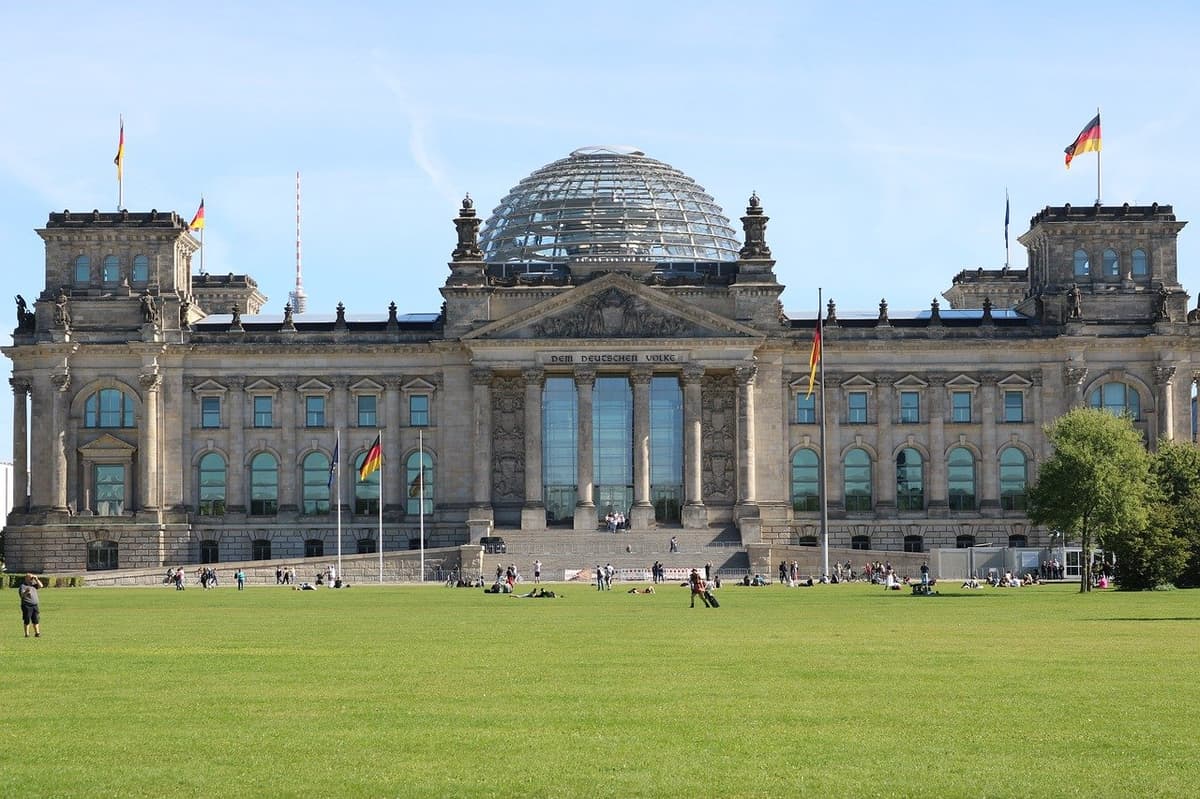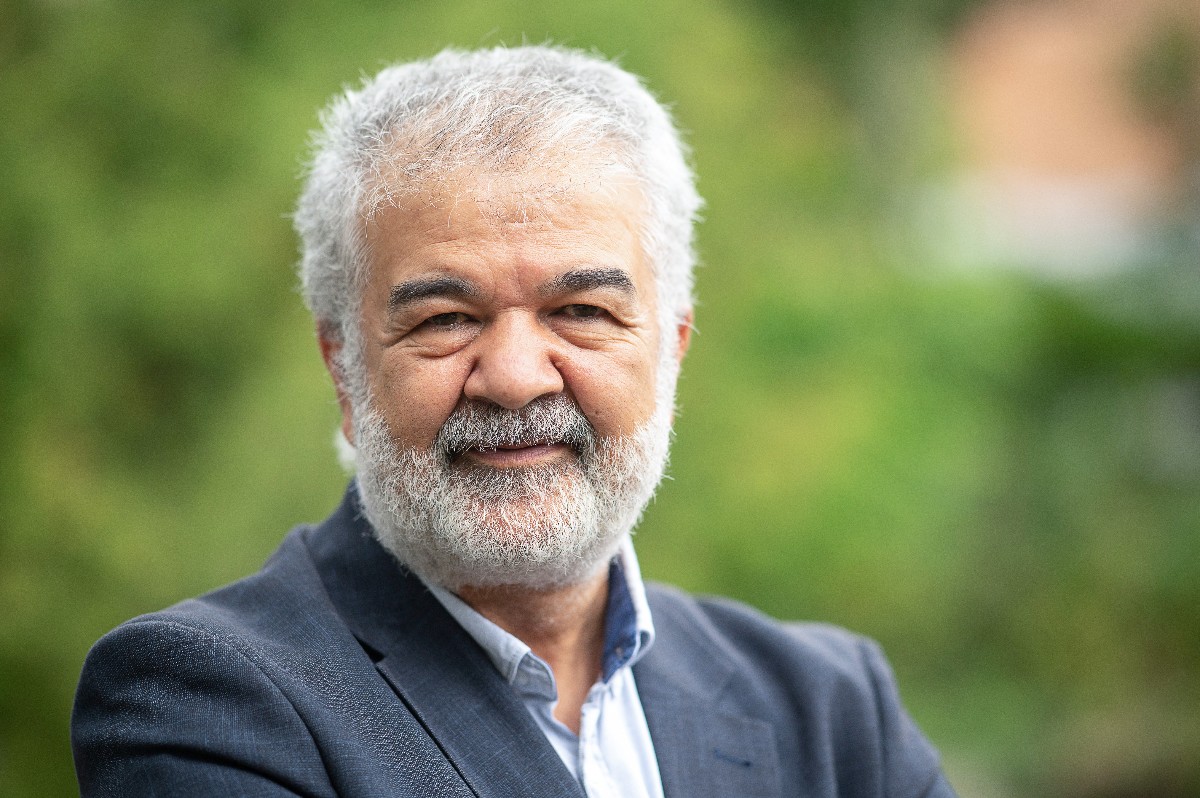Turkish community in Germany expects 50,000 citizenship applications per year

Germany's new citizenship law enters into force on Thursday June 27th. Turkish community leaders in the country say they are expecting an explosion in naturalisation applications.
One of the headline changes of Germany's new naturalisation law is that it will remove the restrictions around holding more than one citizenship.
It means that all foreign residents will be able to keep their existing passport or passports when becoming German - as long as their origin country allows it.
This significant change is expected to prompt many people to apply to become German, particularly long-term residents.
Chairman of the Turkish community in Germany, Gökay Sofuoglu, said on Wednesday that he expects a sharp rise in naturalisation applications from the Turkish population.
READ ALSO: German citizenship offices see spike in applications ahead of new law
"People have now fully taken in that there will be dual citizenship," he told the Redaktionsnetzwerk Deutschland (RND).
"And many are now applying as quickly as possible."
Sofuoglu said he expects as many as "50,000 applications per year" from this community in the coming years. "That seems realistic to me," he added.
The new law contains carve-outs aimed at encouraging members of the so-called 'guest worker' generation, who came to Germany after the war to help rebuild the country, to naturalise in Germany. People who fall into this category will, for example, not need to take a formal language or citizenship test.
Germany, which has a total population of around 84 million, is home to some 2.8 million people with a Turkish background, according to statistics.
READ ALSO: Turks in Germany hope for citizenship law overhaul
Sofuoglu said that many applicants have in mind that they will be able to take part in the Bundestag elections next year once they have been naturalised.
"I therefore appeal to the parties to realise that the applicants are potential voters," he said. "If you want to win them over, then you have to pursue appropriate policies. This includes creating more opportunities for participation in the parties - and seriously combating racism."

Gökay Sofuoglu, chairman of the Turkish community in Germany. Photo: picture alliance/dpa | Sebastian Gollnow
However, actually securing citizenship is expected to take time. Some cities, including Cologne, have stopped accepting applications due to significant backlogs.
There has been some pushback against the law changes, particularly from conservative politicians.
And chairman of the Kurdish community in Germany, Ali Ertan Toprak, said he had reservations about the law, citing fears that "anti-Semites, Turkish nationalists and Islamists" would slip through the net to secure a German passport.
"We already have enough Nazis in this country," he told RND. "We don't need to bring any more into the country."
As well as allowing multiple nationalities for all, the legislation will cut down the required residency period needed to apply from eight to five years. Some people will even be able to apply after three years if they fluent German and exceptional integration achievements.
READ ALSO:
Comments
See Also
One of the headline changes of Germany's new naturalisation law is that it will remove the restrictions around holding more than one citizenship.
It means that all foreign residents will be able to keep their existing passport or passports when becoming German - as long as their origin country allows it.
This significant change is expected to prompt many people to apply to become German, particularly long-term residents.
Chairman of the Turkish community in Germany, Gökay Sofuoglu, said on Wednesday that he expects a sharp rise in naturalisation applications from the Turkish population.
READ ALSO: German citizenship offices see spike in applications ahead of new law
"People have now fully taken in that there will be dual citizenship," he told the Redaktionsnetzwerk Deutschland (RND).
"And many are now applying as quickly as possible."
Sofuoglu said he expects as many as "50,000 applications per year" from this community in the coming years. "That seems realistic to me," he added.
The new law contains carve-outs aimed at encouraging members of the so-called 'guest worker' generation, who came to Germany after the war to help rebuild the country, to naturalise in Germany. People who fall into this category will, for example, not need to take a formal language or citizenship test.
Germany, which has a total population of around 84 million, is home to some 2.8 million people with a Turkish background, according to statistics.
READ ALSO: Turks in Germany hope for citizenship law overhaul
Sofuoglu said that many applicants have in mind that they will be able to take part in the Bundestag elections next year once they have been naturalised.
"I therefore appeal to the parties to realise that the applicants are potential voters," he said. "If you want to win them over, then you have to pursue appropriate policies. This includes creating more opportunities for participation in the parties - and seriously combating racism."

However, actually securing citizenship is expected to take time. Some cities, including Cologne, have stopped accepting applications due to significant backlogs.
There has been some pushback against the law changes, particularly from conservative politicians.
And chairman of the Kurdish community in Germany, Ali Ertan Toprak, said he had reservations about the law, citing fears that "anti-Semites, Turkish nationalists and Islamists" would slip through the net to secure a German passport.
"We already have enough Nazis in this country," he told RND. "We don't need to bring any more into the country."
As well as allowing multiple nationalities for all, the legislation will cut down the required residency period needed to apply from eight to five years. Some people will even be able to apply after three years if they fluent German and exceptional integration achievements.
READ ALSO:
Join the conversation in our comments section below. Share your own views and experience and if you have a question or suggestion for our journalists then email us at [email protected].
Please keep comments civil, constructive and on topic – and make sure to read our terms of use before getting involved.
Please log in here to leave a comment.